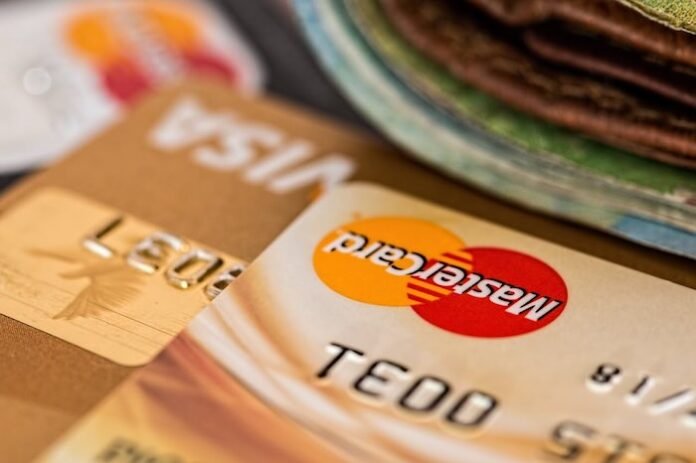According to the Reserve Bank of India, the number of transactions using credit cards at point-of-sale terminals grew by 23.2% between February 2018 and February 2019.
An even spike growth was noticed in the value of such transactions in such a year. In February 2018, the total amount of transactions at PoS terminals stood at Rs. 37,647 Crore. In February 2019, such numbers improved by 28.8% to Rs. 48,489 Crore.
Credit card usage has surpassed the usage of debit cards marginally in the current financial year, owing to more benefits offered by such cards.
Additionally, the Indian credit infrastructure has made it more convenient in terms of the application and approval of credit cards. Individuals only require a minimum of documents, such as KYC documents and a handful of other documents, to properly apply for a credit card.
What are the KYC Documents to Apply for a Credit Card?
There is no definitive list of documents that are followed by all card issuers. Different financial institutions ask for several documents depending on the requirements and the applicant’s profile.
Regardless, documentation stands as one of the most important things to know before applying for a credit card. It verifies your credentials and credibility to the issuer and aids in the process of approval.
List of Basic KYC Documents That You Need to Provide During Application
- Aadhaar card.
- PAN card.
- A voter ID card.
- Passport.
- Driving license.
These are the basic KYC documents that different card issuers might ask for when you apply for a credit card.
Other than this, you also need to provide certain other papers essential to the documentation of a credit card application.
These are
Income proof (any one of the following)
- Income tax return.
- Form 16.
- Latest salary slips.
Age proof (any one of the following)
- Birth certificate.
- 10th standard school certificate.
Other documents
- Form 60
These are the additional documents that a card issuer might ask for when you apply for a credit card.
What are the Eligibility Criteria to Qualify for a Credit Card?
Similar to documentation, there is not a single set of eligibility criteria that every financial institution adheres to. For instance, to qualify for premium credit cards such as the Bajaj Finserv RBL Bank SuperCard, there is a minimal set of criteria that you need to satisfy compared to basic credit cards. Although these criteria vary only marginally, there are a few differences between them.
A few basic eligibility criteria that reputed financial institutions require you to fulfil are:
- Hold a credit score above 750.
- Live in regions where your preferred card issuer operates.
Bajaj Finserv also provides pre-approved offers on credit cards to ease and speed up the process of application process. These offers apply to a broad spectrum of other financial products, which include home loans, personal loans, business loans, etc. You can provide your name and phone number to have a look at your pre-approved offer.
Updating your KYC Details with your Credit Card Issuer is Essential
Cardholders need to update their KYC documents with their existing credit card accounts to ensure that the card-issuing company has the correct information regarding their identity. If you do not update your KYC details, you might be restricted from further usage of a Bajaj Finserv RBL Bank SuperCard or any other credit card.
Therefore, if you apply for a credit card online, it is mandatory to include all the above-listed KYC documents. You should also keep your KYC documents updated with your financial institution to continue using their services.
Factors to Consider Before Applying for a Credit Card
Before you apply for a credit card, there are certain factors you should consider. These are
1. Credit Limit
It is the amount that you are allowed to spend every billing period using your credit card. It is essential to opt for a credit card that offers sufficient limits to meet your financial obligations.
Credit experts consider utilisation of only 30% of a given limit to ensure you maintain a healthy credit score. Therefore, it is essential to consider how to choose the right credit card for yourself to ensure you can adequately meet your monetary obligations while maintaining the prescribed limit.
2. Interest Rate
Although you are not required to pay any interest on your card dues if you do not exceed the payment due date, you must learn about it beforehand. If you forget to pay your credit card bills, then the interest rate will be charged on your bills, so finish all your payments before the due date. It will also help to build your credit limit.
3. Spending Habits
Credit cards come with customer loyalty programs in the form of reward points. You earn these points at every purchase, which you can later redeem to avail discounts on future transactions, cashback, or vouchers.
Different cards come with different programs, such as waiver of fuel charges, movie ticket discounts, etc. Consider your spending habits and choose a card that offers loyalty programs in tandem with it.
Use a credit card wisely to ensure you can earn maximum reward points. Refer to the above list of KYC documents when applying for a credit card. Doing so will ensure a faster application process.

